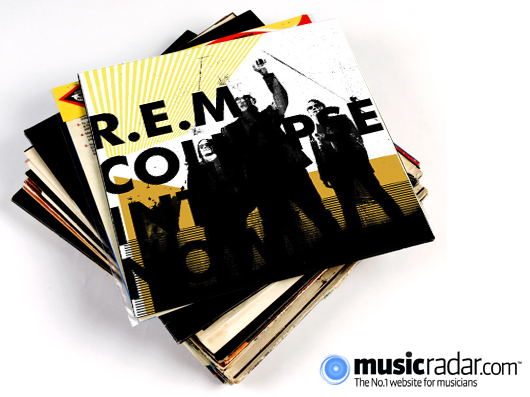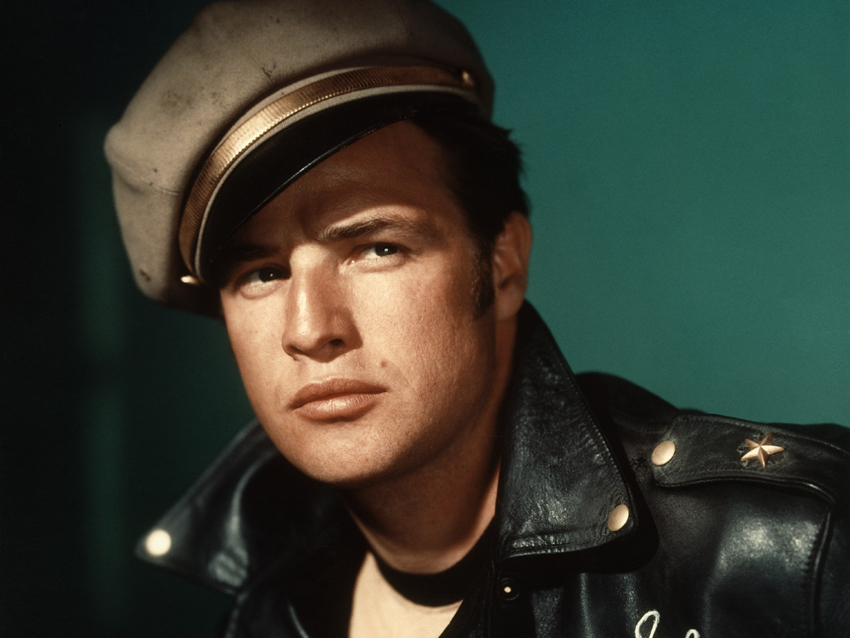REM: Collapse Into Now album review, track-by-track
The new LP for 2011, the band's 15th, is a return to form

REM: Collapse Into Now
With the release of Accelerate in 2008, the general consensus was that REM had managed to arrest a worrying decline. The band’s two previous 21st century albums, while racking up initially healthy sales, had met with an underwhelming reception from both critics and fans, and Accelerate seemed to provide a long overdue adrenalin shot, full of the pace and urgency of their earliest records.
Collapse Into Now, their 15th studio offering (released 7 March 2011), finds Michael Stipe, Peter Buck and Mike Mills once again delving into their back pages and bygone triumphs; a distillation of everything that made REM one of the most vital groups on the planet in the first place.
“There are some really pretty acoustic things, some total noisy rock, and some kind of poppy stuff,” Buck told Pitchfork last year, while Mills suggested to Rolling Stone that “it makes sense as a whole, the same way that Automatic For The People did.”
It’s an interesting reference, the bass player perhaps trying to plant a seed in fans’ minds that the new record is worthy of comparison with the 1992 album that remains their most universally adored. But while Collapse Into Now undeniably contains motifs familiar to Automatic..., there are just as many allusions to the moods and atmospheres of, say, Document, Out Of Time or Monster.
The new album took shape over sessions in Berlin, Nashville, and New Orleans throughout most of 2010, interspersed with lengthy breaks for writing and rewriting. Accelerate producer Jacknife Lee is behind the desk again, and the band also reached out for little help from some famous friends.
First track: Discoverer

Discoverer
Buck’s strident guitar opening is so reminiscent to Finest Worksong that, for a few seconds, listeners could be forgiven for thinking they were indeed hearing an alternate version of the first cut from the Document album.
Closer inspection reveals a kind of eastern drone, bleeding into some crunchy power chords, while Stipe hollers a lyric about self-awareness and opportunities, punctuated by a “na-na-na-nah” passage not dissimilar to the vocal riff from Deep Purple’s Hush.
Listen:
Next: All The Best

All The Best
The tempo quickens for a grinding, grunge-like workout, with Buck and second guitarist Scott McCaughey (very much a fixture with the band both on stage and in the studio since 1994) laying down a dense wall of sound to accompany a typically esoteric Stipe lyric.
The singer makes mention of his “Quasimodo heart” and how he "rang the church bell/’Til my ears bled red blood cells". Sonically, it recalls the more rough-edged inclusions from 1994’s Monster.
Next: Uberlin

Uberlin
The folky side of Out Of Time springs to mind on first listen, Buck leading the charge with a confidently strummed acoustic and sneaking in a finger-picked sub-melody that recalls Mason Williams’ big 1960s instrumental hit Classical Gas.
All three band members contribute to the instrumental bridge, played on a Korg monotron (listen and skip to 2:30 to hear it quite low in the mix).
The initial demo was recorded in New Orleans, and the band opted to do little to it when reconvening in Nashville a few months later, adding only Stipe’s vocal and understated brushed drums. Again, the singer’s lyrics defy coherent interpretation, even to those closest to the band.
"Michael had a lyrical idea that was so complex that I didn't understand what he was getting at, even after he explained it to me," producer Lee told The Huffington Post. "He has pages and pages of lyrics and ideas, with back stories for characters that don't figure in the song."
Listen:
Next: Oh My Heart

Oh My Heart
First performed live on a National Public Radio podcast last year, the studio version leaked on to the internet via the band’s own website at the start of 2011, this is arguably the album’s first track with the potential to establish itself as a fan favourite and enduring classic.
Recorded in New Orleans, hence the brief funereal brass of the intro, and written as a post-Katrina prayer (“I came home to a city half erased,” Stipe sings), its waltz-like rhythm is provided by acoustic guitar and mandolin, with an accordion sneaking in to the mix midway through the first verse. Stipe’s simple yearning in the chorus is underpinned by a trademark counter vocal from Mills.
Listen:
Next: It Happened Today

It Happened Today
Pearl Jam’s Eddie Vedder and Joel Gibb of Canadian band The Hidden Cameras add backing vocals to a mandolin-led strummer with shades of The Byrds. In terms of REM’s own output, it recalls the more rustic side of the Life’s Rich Pageant album, while the sway of the chorus suggests a more subdued version of Orange Crush from Green, or Out Of Time’s Texarkana.
Stipe’s vocal is pushed forward in the mix, not that it makes deciphering the intent of his lyric any easier a task!
Listen:
Next: Every Day Is Yours To Win

Every Day Is Yours To Win
Another classic-in-waiting, the (on initial exposure) simplistic slow tempo melody pushing the same emotional buttons as Everybody Hurts, while sharing that song’s lyrical message of hope, strength and support: “I cannot tell a lie/It’s not all cherry pie/But it’s all there waiting for you...”.
Buck’s unfussy picked guitar line is doubled by Mills on what sounds like a glockenspiel, giving the track the feel of a reassuring lullaby. The repeated “Hey, yeah!” of the chorus cries out to be sang lustily by audiences, although early indications are that the band won’t be playing live to promote the album.
Next: Mine Smell Like Honey

Mine Smell Like Honey
A sleazy rocker packed with sexual metaphor (“you’re going to sing the praises of your fruit”) which finds Buck at least partially reconnecting with the indie jangle of the band’s earliest albums (Murmer, Reckoning).
The chorus of a double-tracked Stipe accompanied by a low-in-the-mix Mills wailing a counter-melody also has the hallmarks of vintage REM.
Listen:
Next: Walk It Back

Walk It Back
Another track from the New Orleans session, the city clearing inspiring the hymnal tones of the song’s signature piano, which references the sombre closing selections of Automatic For The People (Nightswimming, Find The River).
Stipe provides a half-whispered croak of a vocal, its confessional delivery further enhancing the spiritual nature of the piece. Very few white guitar-led rock bands can carry off soul introspection with this level of authenticity.
Next: Alligator Aviator Autopilot Antimatter

Alligator Aviator Autopilot Antimatter
The title alone brings to mind the kind of REM parody that Chris Morris might have fashioned for The Day Today or Brass Eye, and it’s plain the band themselves are having fun, refusing to take themselves too seriously.
It’s blistering, pounding rock, with Buck and Mills seemingly putting the most cherished new wave singles of their youth into a blender to make a fresh and deliciously stomping power pop smoothie, with added guitar from veteran musician/producer Lenny Kaye.
Lyrically, Stipe is in the same scattergun stream-of-conscious mode of It’s The End Of The World As We Know It, with tough gal rocker Peaches shouting along, similar to the role The B-52s’ Kate Pierson played on the band’s Me In Honey.
Next: That Someone Is You

That Someone Is You
All three members of REM are now in their early 50s, but you wouldn’t know it from listening to this adolescent rush of melodic garage pop, a thrilling and energised blend of The Lovin’ Spoonful and The Flamin’ Groovies, with Buck and McGaughey piling on the guitars at breakneck speed.
One of the shortest tracks the band have ever recorded (it times out at a little over a minute-and-a-half), it’s largely a straight-down-the-line love song, although Stipe can’t resist giving the weirdometer a little tweak by rhyming “Sharon Stone Casino” with “Scarface Al Pacino” and “‘74 Torino”. Speaking of movie stars...
Listen:
Next: Me, Marlon Brando, Marlon Brando And I

Me, Marlon Brando, Marlon Brando And I
It may just be coincidence, but this introspective acoustic strummer bears striking similarities to the last REM song to name check an actor in its title, Automatic For The People’s Montgomery Clift-referencing Monty Got A Raw Deal.
Whereas the earlier track specifically addressed Hollywood’s callous reaction to Clift’s homosexuality, the meaning isn’t quite so clear here, apart from a vague suggestion of Stipe himself identifying with some aspects of Brando’s life.
The most stripped-down inclusion on the album, the singer is accompanied by soft acoustic guitar and mandolin, a reserved wash of organ and lightly brushed drums.
Next: Blue

Blue
Patti Smith’s second appearance on an REM track shares sonic parallels with her first, E-Bow The Letter from 1996’s New Adventures In Hi-Fi. A dirge-like rhythm, bolstered by fuzz guitar, Stipe’s reverbed vocal takes the form of a half-spoken beat poem, a catalogue of seemingly unconnected declarations, including the phrase which gives the album its title.
Smith, who Buck claims suggested the album title after reading Blue’s lyric sheet, sings a languid - and equally enigmatic - counterpart over Stipe’s tirade (“Cinderella boy, you lost your shoes”), adding to the song’s pervading sense of other-worldliness.
Next: the final verdict

Verdict
There may not be any great radical progression, and maybe we’d be wrong to expect such a thing from a band edging towards their fourth decade together, but Collapse Into Now does suggest that REM are touching base with many of the past elements that made them so exciting in the first place.
By stopping off at so many musical map pins from their long history, REM are wilfully challenging anyone, fans or critics, to find a tidy pigeon hole in which to place their latest album.
It’s a dizzying and disparate ride, no one style or direction taking precedence over another, but the songs hang together surprisingly well, and, as Mills claimed in the weeks before its released, it "makes sense as a whole".
REM mean many things to many people, and just about all of them are catered for here.
Liked this? Check out Peter Buck in 16 Rickenbacker guitar and bass stars
Connect with MusicRadar: via Twitter, Facebook and YouTube
Get MusicRadar straight to your inbox: Sign up for the free weekly newsletter
"Reggae is more freeform than the blues. But more important, reggae is for everyone": Bob Marley and the Wailers' Catch a Fire, track-by-track
“Part of a beautiful American tradition”: A music theory expert explains the country roots of Beyoncé’s Texas Hold ‘Em, and why it also owes a debt to the blues
"Reggae is more freeform than the blues. But more important, reggae is for everyone": Bob Marley and the Wailers' Catch a Fire, track-by-track
“Part of a beautiful American tradition”: A music theory expert explains the country roots of Beyoncé’s Texas Hold ‘Em, and why it also owes a debt to the blues









